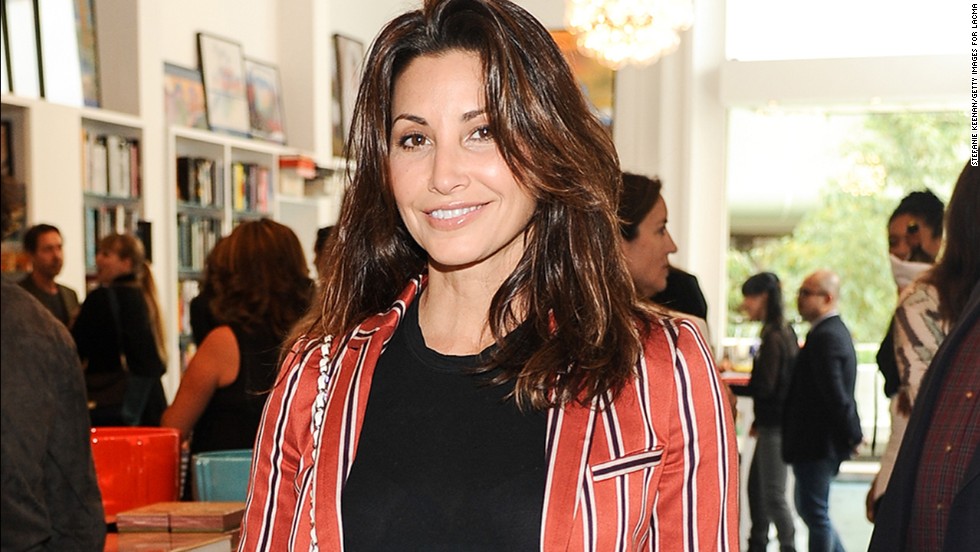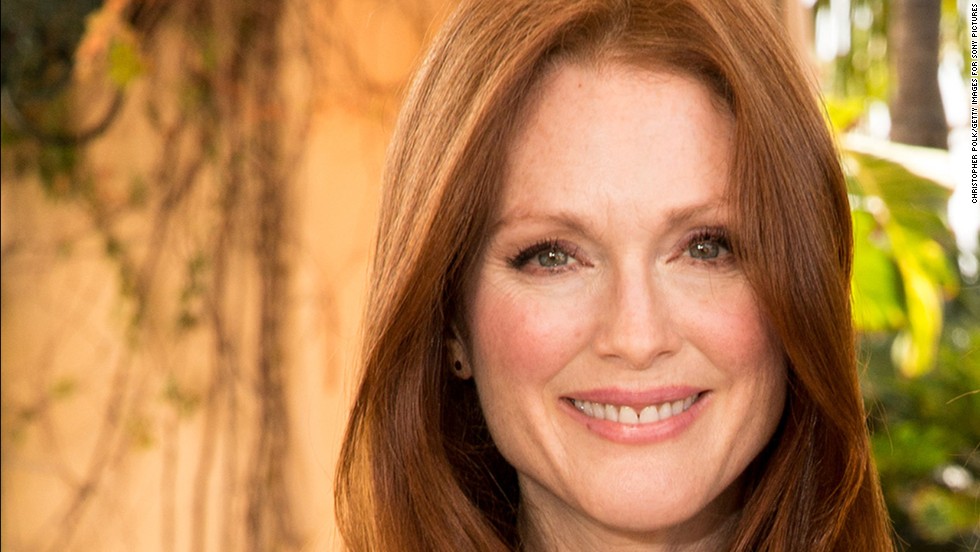Story highlights
- CNN's Kelly Wallace shares her feelings about turning the big 5-0
- The negative societal view of midlife does not match the research, author says
Kelly Wallace is CNN's digital correspondent and editor-at-large covering family, career and life. Read her other columns and follow her reports at CNN Parents and on Twitter @kellywallacetv.
(CNN)I had always planned on having a dance party for my 50th birthday this year. Think how fun it would be: hire a DJ, invite friends and family and dance the night away like I did in college.
But something funny happened as my milestone approached. I found myself in a major funk, and the thought of a dance party was the furthest thing from my mind.
I had always said age is a state of mind; 50 is the new 30, right? Was I suddenly feeling blue because my big birthday was imminent?
For some answers, I turned to Robi Ludwig, a nationally recognized psychotherapist and author of a new book, "Your Best Age is Now: Embrace an Ageless Mindset, Reenergize Your Dreams and Live a Soul-Satisfying Life."
Ludwig says midlife is certainly a "stop and pause moment" where we tend to plug into ourselves in a different kind of way. "There's a tendency to take stock: 'Am I where I want to be? What do I need to do for the next phase of my life?' " Ludwig said last week when we chatted during a segment on "Tell Me Everything with John Fugelsang" on Sirius XM Insight. "And that's exactly right. That's where we should be."
The problem many of us encounter, said Ludwig, is that we face a society that isn't exactly celebrating being middle-age. In fact, it's doing the exact opposite with a message that we're "over the hill" and that our best days are behind us.
"It's really a shame, because when midlife was first defined, it used to be called the prime of life, and somewhere along the line, it didn't exactly mean that," said Ludwig, 51. "Culturally, we live in a place, a society that over-idealizes youth, and even though youth is great, it maligns midlife in a very unfair and inaccurate way, and we do internalize that. Listen, we are affected by our environment."
'I told her my age. There was ... silence'
Ludwig set out to write a book about what happens to women and men in the middle of their lives after an eye-opening moment in her 40s.
She was interviewing to be on a television show when the casting director asked how old she was. "I'm not one to ever lie about my age, because I figured I earned those years. I don't want to dismiss them. They're part of who I am. And when I told her my age, there was like dead silence. She couldn't get off the phone soon enough. And after the phone call, I had a moment where I said, 'Wow, is this it for me? You know, I don't feel old, but do other people perceive me that way? Has my heyday come and gone?' "
Those questions led her to begin a journey of research. When she looked at the books that were available about being middle-age, she said, she was amazed at how depressing they were and how they were all about loss and how you negotiate loss.
"I thought, given the people that I know in midlife, this is not an accurate reflection of what I'm seeing in my private practice or in my own personal life, and fortunately, the really new research out there supported my intuition," she said.
In her book, Ludwig touts this new research, some of which shows that today's midlife is very different from what our parents or their parents experienced. First of all, we're living longer than previous generations, and with that comes an increased need to live younger, said Ludwig, who began working as a psychotherapist in 1988.
Fifty-five percent of Americans 50 and older plan to work past 65 or have already done so, and 25% of those who are not retired say they never plan to retire, according to a study by the AP-NORC Center for Public Affairs Research.
Our perceptions of aging may also be more convincing than reality, according to the research.
People who feel younger actually live longer than those who feel their age or older, according to a study in 2015 published in JAMA Internal Medicine online. Another study, this one by researchers from Yale University and the University of California, Berkeley in 2014 found that people who were exposed to positive stereotypes about aging did better on physical tasks, such as balance, than their peers who had worked out for the previous six months.
And despite thinking that we are who we are by age 50 -- or, as I like to say, that the cake is fully baked -- there is research to suggest our personalities continue to evolve over time. According to a 2003 study in the Journal of Personality and Social Psychology, traits such as agreeableness continued to improve through a person's 60s.
Our brains also keep changing and growing, quite a contrast to the belief that midlife marks the beginning of our mental decline, said Ludwig.
"The latest advances in brain imaging have shown that the brain grows new cells throughout our lives in a process called 'neurogenesis,' " she said in her book. "We now know we can continue to learn new things, improve thinking and mood, create new memories, and retain cognition well into old age."
Hearing what Ludwig has to say certainly makes me feel better about entering this next chapter of my life. So too does hearing about the impact your attitudes about aging can have on your overall mental health.
She points to a study (PDF) from the University of Waterloo that found a correlation between people who had negative attitudes toward aging and were feeling older with a lower psychological well-being. This goes back to that concept of age as a state of mind. If you think you are old, you are going to feel old, so why not think and live like you're 29?
What's next? Using creativity to figure it out
As Ludwig said, when we enter our midlife, we do stop and think about where we've been and where we're going. And if you are unsure of where you want go from here, Ludwig recommends using creativity to figure it out.
"I give a recommendation in my book where I say, 'Create your own art project and see what you're drawn to,' " she said. "And look around: Is there somebody you feel a little bit envious of? Maybe that can also be indicative of what you want next for yourself, so be aware of what you're drawn to and creatively give your time to explore."
If you dreamed of becoming a Broadway star but can't sing, you might not want to quit your day job, but you can still find a way to incorporate new things into your life and see how they feel, she says. Take a class. Explore your daydreams. Give yourself time and space to consider new paths.
"You could take an acting class and basically use this as a time to explore and say, 'I'm going to explore and say yes to life and see where that leads to,' " said Ludwig. "You can say yes and at the same time set boundaries and turn to your friends. Rely on the people and the connections that you've made to help you with this next phase of life."
OK, friends and family, consider yourself warned: You'll be hearing a lot from me in the months ahead. In the meantime, I think I need to sign up for that dance class I've been thinking about for a while.
Could the Broadway stage be next?





















































































































































































